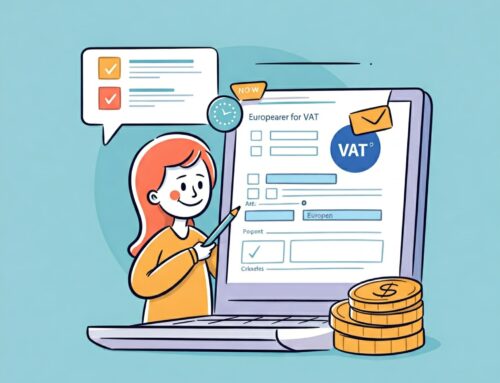This article has been written after the the substantial change in VAT regulation of July 2021.
Expanding your online business within the European Union (EU) is an exciting opportunity, but it also means understanding and complying with the tax obligations of each country. If you sell your products or services to customers in different EU nations, you’re likely wondering: do I need to register for VAT in multiple countries? The answer, as with many tax-related questions, depends on several key factors.
When Multiple VAT Registrations are Needed
-
Storing Goods in Multiple Countries: If you store your products in different EU countries (for instance, in Amazon FBA warehouses in Germany, France, and Spain), you will generally need to register for VAT in each of those countries. Having a warehouse requires a local VAT ID.
-
Sales That Do Not Meet OSS Requirements: The One-Stop Shop (OSS) system is designed to simplify VAT for sales to consumers, but if the nature of your operations is different, such as business-to-business (B2B) sales, the application of VAT exemptions in each country requires a local VAT number.
-
Services Requiring Fiscal Representation: Some EU countries, such as Italy and France, require companies based outside the EU to have a local fiscal representative for VAT registration. This could limit the usefulness of the OSS and make the hiring of local VAT compliance necessary.
-
Dropshipping from outside the EU: If your business is based outside of the EU and you operate a dropshipping model without a warehouse in the EU, then you may be considering IOSS, but you don’t need a VAT ID in those countries.
How to Manage the Complexity of Multiple VAT Registrations
-
Planning: Before expanding to new markets, carefully evaluate your storage plans, logistics, and customer base. This will help you determine whether multiple VAT registrations are needed for your business.
-
Expert Advice: Seek advice from tax experts in the EU. A VAT specialist can help you navigate the specificities of each country, optimize your tax strategy, and avoid costly mistakes.
-
Automation: Use specialized software to automate the gathering of sales data and the submission of VAT reports. This can greatly simplify the management of VAT across multiple countries.
-
Consolidation: Evaluate whether a structure that consolidates sales and VAT management in a single home country can benefit your business model.
If your business is growing and you sell in multiple EU countries, understanding the specific needs of each location, as well as your sales model, is key to operating legally and efficiently. VAT registrations in multiple countries requires some good planning and a well thought-out strategy, but don’t let this discourage you, we are here to assist with all the requirements to make your business expansion in a compliant way.
Call to Action:
Feeling overwhelmed by the complexities of VAT in the EU? Contact us today to explore how we can simplify your VAT compliance and help you expand your business seamlessly.





